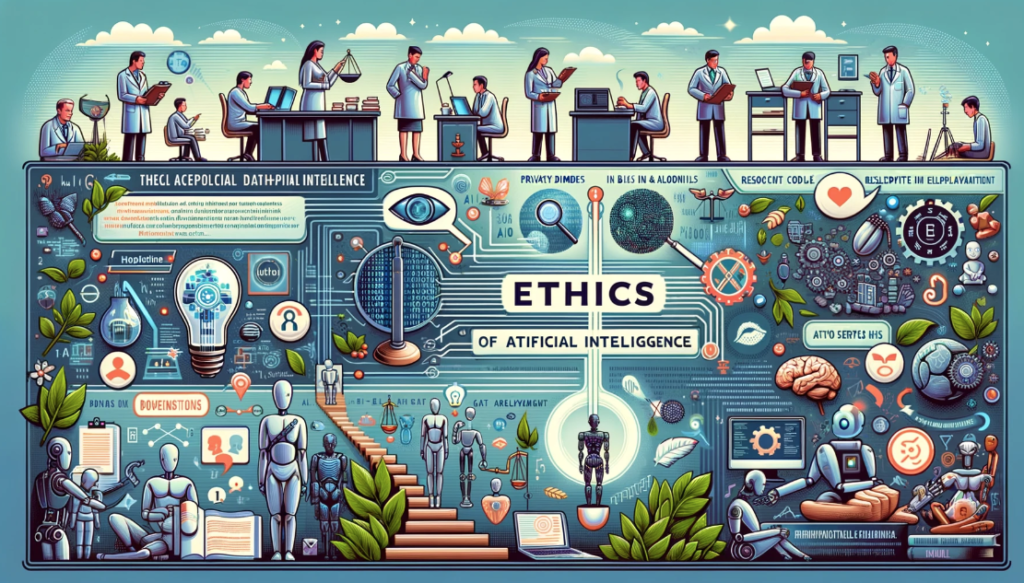Lesson 40.
The Ethics of Artificial Intelligence (人工知能の倫理)

▮ Explanatory Text:
The ethics of Artificial Intelligence (AI) encompasses a wide array of considerations regarding the development, deployment, and impact of AI technologies on society. As AI systems become more integrated into various aspects of daily life, ethical questions arise about privacy, autonomy, bias, accountability, and the potential displacement of jobs. Ethical AI seeks to ensure that technology enhances human capabilities without infringing on human rights or causing harm. This topic explores the principles of ethical AI, including transparency, fairness, and respect for human dignity, and discusses the challenges and strategies for implementing these principles in AI development and application.
▮ Common Phrases:
1. Algorithmic bias can result in…
2. The principle of transparency in AI requires…
3. Ensuring AI accountability involves…
4. The impact of AI on employment raises questions about…
5. Ethical considerations in AI development include…
▮ Example Sentences:
1. Algorithmic bias can result in unfair outcomes and discrimination in decision-making processes.
2. The principle of transparency in AI requires that AI systems be understandable and their decisions explainable.
3. Ensuring AI accountability involves mechanisms for oversight and mechanisms to address adverse outcomes.
4. The impact of AI on employment raises questions about economic inequality and the future of work.
5. Ethical considerations in AI development include respecting user privacy and ensuring the security of data.
▮ Questions:
1. What are the main ethical concerns associated with artificial intelligence, and why are they important?
This question encourages learners to discuss the ethical implications of AI and the significance of addressing these concerns for society.
2. How can developers and policymakers work together to ensure AI technologies are developed and used ethically?
Participants explore the roles of developers and policymakers in promoting ethical AI, including regulatory frameworks and ethical guidelines.
3. & 4. What measures can be taken to prevent and mitigate algorithmic bias in AI systems?
This prompts a discussion on strategies for identifying and correcting biases in AI algorithms to ensure fairness and equity.
Discuss the potential impacts of AI on the workforce and how society can prepare for these changes.
Learners examine the effects of AI automation on jobs and discuss approaches to workforce development and social safety nets.
5. How does the principle of transparency apply to AI, and what challenges does it present?
This question invites learners to reflect on the importance of transparency in AI operations and the technical and ethical challenges in achieving it.
▮ Discussion Instructions:
Choose a specific ethical issue related to artificial intelligence that interests you, such as privacy concerns, the use of AI in surveillance, or the ethical implications of autonomous vehicles. Discuss the ethical dilemmas it presents, potential solutions or approaches to address these concerns, and the broader implications for society and technology. Reflect on the balance between innovation and ethical responsibility in the development and application of AI.







